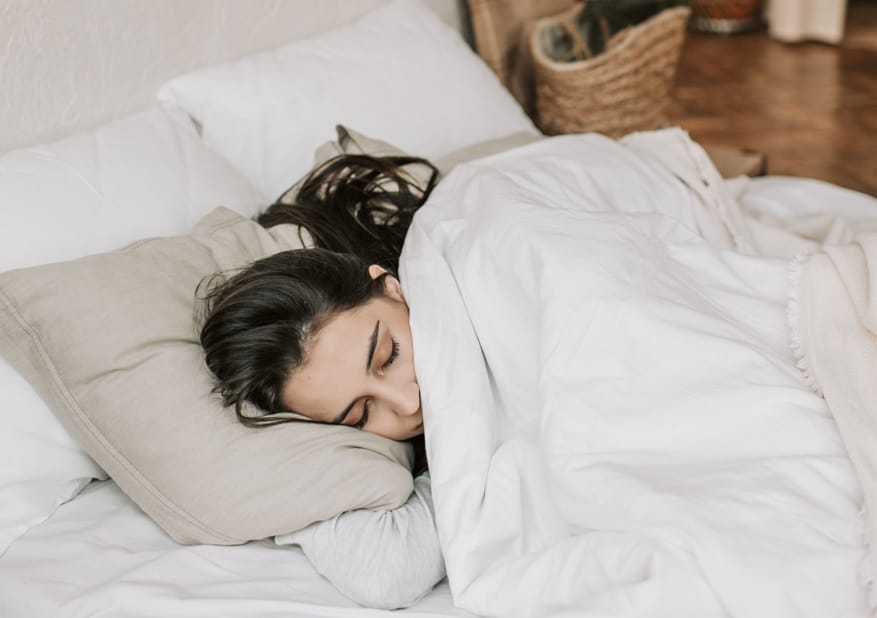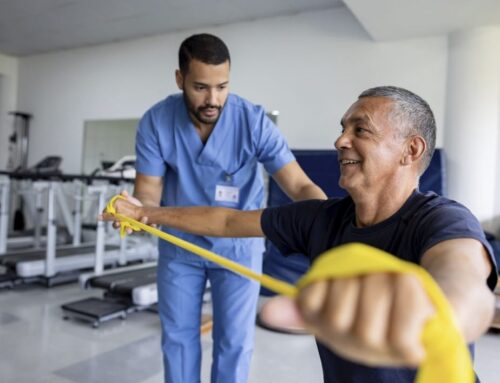A good night’s sleep should recharge us and give us ample energy for the day ahead. When you do not sleep well because of chronic pain, you wake up tired. Your body has not rested enough to get you through the day, and many wonder how to get better sleep.
Orthopaedic care manages the musculoskeletal system of bones, joints, ligaments, tendons and muscles that provide stability and support for your body. You need ample sleep to allow your muscles and joints to recover and recharge so your musculoskeletal system can do its job during the day.
Sleep also helps you release growth hormones that repair muscles. A recent study found that people who do not get enough sleep regularly increase their risk of muscle loss and function. In this article, our orthopaedic doctors explain how orthopaedic care relates to getting a better night’s sleep.
What orthopaedic conditions interfere with sleep?
Unfortunately, when you have chronic pain from an orthopaedic condition, it can be difficult to get a good night’s rest. Here are a few of the conditions that can affect the quality of your sleep:
Osteoarthritis
Osteoarthritis (OA) causes joint aches and stiffness that may feel worse when you are in bed. The condition can cause pain in the hips and knees, which makes it difficult to find a comfortable position in bed. Nearly 70 percent of people with OA have problems sleeping.
Spine problems
Chronic and acute spine issues can make it difficult to sleep. Lying down can be painful if you have spine trauma, muscle strains, osteoporosis or a degenerative disease. Your spine should be completely relaxed when lying down because it is not bearing weight, but we often end up sleeping in awkward positions that can increase discomfort.
Neck pain
Neck pain is one of the biggest contributors to not getting enough sleep. Pain can be caused by a cervical strain, muscle spasms or wear and tear of the neck vertebra. It is sometimes difficult to get comfortable lying on a pillow because of neck pain.
How can I improve my sleep?
Rest is key to overall health, so sleeping with chronic pain can worsen symptoms of orthopaedic conditions. Let’s look at changes you can make in orthopaedic care for better sleep:
Change your sleep posture
Sleep posture plays a role in how well you sleep. Your sleeping position can have a negative impact on your neck, hips and knees. People generally keep the same position throughout the night, so if you fall asleep in an awkward position, you can wake up with a cramp or tightness in your neck or back. Consider these three sleeping positions and how they affect your body:
- Back
The best way to sleep is on your back because your weight is eventually distributed, and your spine is in its natural position. Use a pillow under your head for support and alignment with the rest of your body. If you have lower back pain, use a second pillow under your knees to relieve strain and tension.
- Side
Many people find sleeping on their side is the most comfortable position. If you must sleep on your side but have spine pain, you can pull both legs up into a fetal position to keep your back in a flexed position.
If you tend to have neck pain after sleeping on your side, you may need a pillow that fits in the space between your shoulder and head to support your neck. Side sleepers with hip pain can tuck a pillow between their knees to keep their hips aligned and reduce the pressure on their lower back and hips.
- Stomach
Sleeping on your stomach is the worst position for the body. It can cause tension in your lower back because your spine is not neutral and relaxed. Turning your head to one side for a long period causes stress on your shoulders and neck. Sleeping on your stomach also puts pressure on your knee joints.
Look into pain relief
Talk to your doctor about over-the-counter or prescription medications that can help ease pain at night. NSAIDs like aspirin or ibuprofen can provide relief for joint pain. Topical pain medications may also work for your condition. Your doctor may also recommend using either ice or heat, depending on the area and type of pain you are experiencing.
For long-term relief, your orthopedic specialist may suggest steroid injections, physical therapy or other non-surgical options to manage pain at night.
Exercise
Exercise during the day so you can sleep better at night. Exercise keeps muscles strong so they can support your joints. Talk to your doctor before starting a new exercise routine or if you have an injury.
Stretching should also be part of your physical activities. Stretching before bed to loosen muscles can help you relax. When you wake up, gentle stretches can help ease tension, get the circulation flowing and open up your muscles.
Limit caffeine
Caffeine is a stimulant that stays in the body for several hours, so most doctors recommend not drinking anything with caffeine four to six hours before bed. If you cannot sleep because you feel anxious or wired, cut back on caffeine to see if it helps.
Check your mattress
Mattresses should be replaced every eight to 10 years. If yours is saggy and uncomfortable, it will contribute to aches and pains. If you need additional support, there are several orthopedic mattresses available.
Also, consider the pillow you are using. Make sure it is firm enough to support your neck. You may need additional pillows to support other areas of your body, like your knees or hips.
Get better sleep with Cary Orthopaedics
If joint pain or muscle tension keeps you up at night, call us to make an appointment with one of our board-certified specialists. We will give you a personalized plan to help manage pain so you can get a good night’s sleep.






